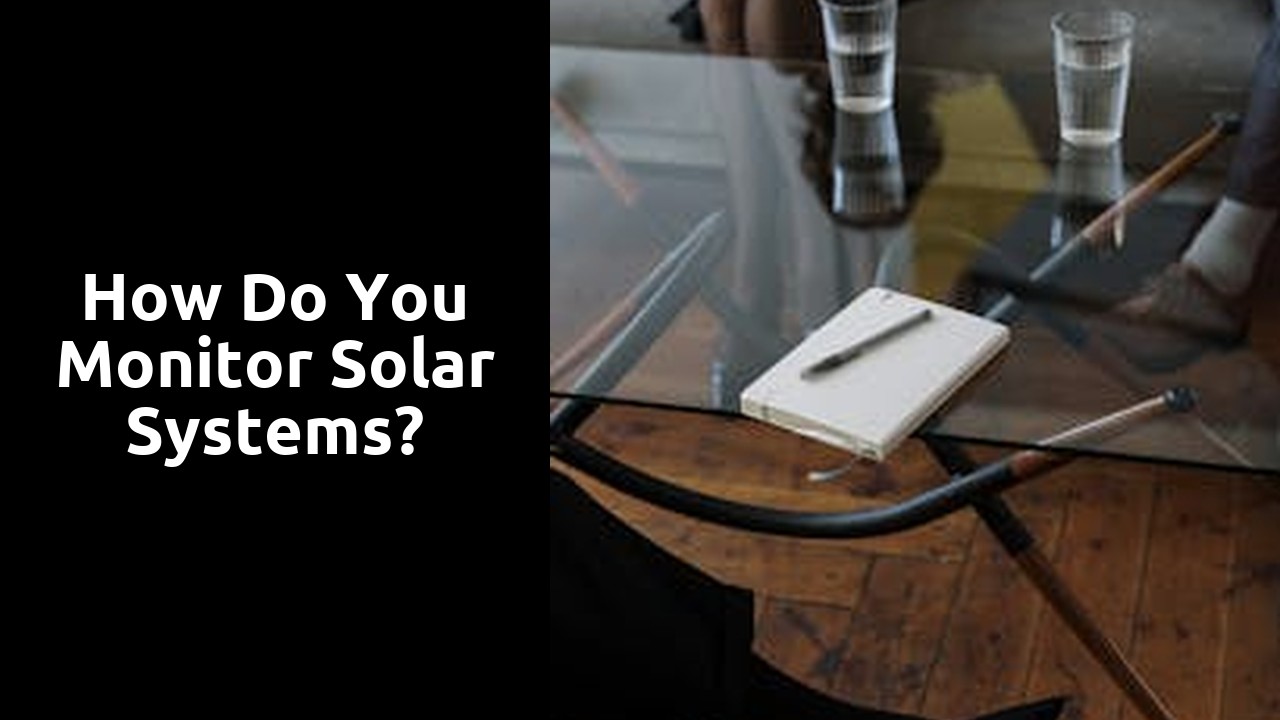
CostEffectiveness of Solar Panel Monitoring
Solar panel monitoring systems have become increasingly popular as more homeowners and businesses seek to optimize the performance of their solar energy systems. While the initial cost of installing a monitoring system may deter some, the long-term benefits often outweigh the upfront investment. By monitoring the efficiency and output of solar panels, individuals can identify potential issues early on and take proactive steps to maximize energy production. Solar panel monitoring systems can also provide valuable data for assessing the overall performance of the system and making informed decisions for maintenance and upgrades. This proactive approach can lead to significant savings and increased return on investment over the lifespan of the solar panels. In addition to monitoring solar panels, homeowners and businesses can also benefit from Solar Hot Water System Monitoring and Analysis to further enhance the cost-effectiveness of their renewable energy systems.
LongTerm Savings and ROI
Generating long-term savings and ensuring a favourable return on investment (ROI) are key goals for those considering solar panel monitoring systems. By actively monitoring the performance of solar panels, homeowners can identify potential issues early on and address them promptly, thereby maximising the efficiency and lifespan of their solar system. Additionally, with regular monitoring and analysis, individuals can make informed decisions about system maintenance and upgrades to further enhance their energy savings.
One crucial aspect that many may overlook is Solar Hot Water System Monitoring and Analysis. By incorporating monitoring solutions for solar hot water systems, householders can not only optimise energy usage but also track the performance of their water heating system. This proactive approach can lead to significant long-term savings as any inefficiencies or malfunctions can be detected swiftly, ultimately contributing to a more sustainable and cost-effective energy consumption strategy.
DIY vs. Professional Solar Panel Monitoring
When deciding between DIY and professional monitoring for your solar panel system, it is crucial to weigh the pros and cons of each approach. With a DIY setup, you have the advantage of lower initial costs and the independence to tailor the monitoring system to your specific needs. However, DIY solutions may lack the advanced features and real-time data analysis that professional monitoring services can provide, potentially limiting the efficiency and performance of your solar panel system.
On the other hand, opting for professional solar panel monitoring offers the expertise of trained professionals who can ensure accurate data collection and analysis. This can lead to better insights into your system's performance and potential issues, ultimately maximising your long-term savings and return on investment. Professional services often include features such as regular maintenance checks, performance alerts, and detailed reports, enhancing the overall efficiency and effectiveness of your solar hot water system monitoring and analysis.
Pros and Cons of Each Approach
When it comes to monitoring solar panels, homeowners have the option of choosing between a do-it-yourself (DIY) approach or opting for professional monitoring services. One of the main advantages of the DIY method is cost savings. By monitoring the system independently, homeowners can avoid monthly subscription fees associated with professional monitoring services. Additionally, DIY monitoring provides homeowners with a hands-on approach to understanding the performance of their solar panel system.
On the other hand, professional monitoring services offer a higher level of expertise and convenience. With professional monitoring, homeowners can benefit from the experience and knowledge of professionals who can detect issues promptly and provide guidance on system optimization. Moreover, professional monitoring services often include comprehensive analysis of the system's performance, offering insights that may not be easily achievable with DIY methods. Solar Hot Water System Monitoring and Analysis can significantly contribute to the efficiency and longevity of the solar panel system.
Setting Up a Solar Panel Monitoring System
Setting up a solar panel monitoring system is crucial for ensuring the efficient functioning and performance of your solar energy system. Regular monitoring allows you to track the energy production of your solar panels, identify any potential issues early on, and optimize the system for maximum output. One key aspect of setting up a monitoring system is to consider incorporating Solar Hot Water System Monitoring and Analysis into the overall setup. This can provide valuable insights into the energy production specifically related to hot water systems, allowing for more targeted adjustments and improvements.
When setting up a solar panel monitoring system, it is essential to ensure that all components are compatible and properly configured. This includes selecting the right monitoring devices or software that can accurately collect and analyse data from your solar panels. Configuring the system to send alerts or notifications in case of any irregularities or underperformance can help in addressing issues promptly and maintaining the optimal operation of the solar energy system. By investing time and resources into setting up a comprehensive monitoring system, you can enjoy the long-term benefits of improved energy efficiency, cost savings, and overall performance of your solar panel setup.
Installation and Configuration Steps
Installation and configuration of solar panel monitoring systems are crucial steps in ensuring the efficient performance of solar panels. To initiate the process, it is imperative to choose an appropriate monitoring system that aligns with the unique requirements of the solar panel setup. Opting for a system that offers real-time data on energy production and consumption can enhance the overall effectiveness of the solar power system.
Once the monitoring system is selected, the next step involves physically installing the monitoring equipment and connecting it to the solar panels. Proper placement of the monitoring equipment and accurate wiring are essential for accurate data collection and analysis. Additionally, configuring the monitoring system to integrate with other smart devices, such as Solar Hot Water System Monitoring and Analysis tools, can further enhance the efficiency and functionality of the entire setup.
FAQS
Do solar panels need monitoring?
Monitoring solar panels is not mandatory, but it can be highly beneficial to track their performance and ensure they are operating optimally.
How does monitoring solar panels help in terms of cost-effectiveness?
Monitoring allows you to identify any issues early on, potentially saving you from expensive repairs or inefficiencies in the long run.
What are the long-term savings associated with monitoring solar panels?
By monitoring your solar panels regularly, you can optimize their performance, leading to increased energy production and greater savings on electricity bills over time.
Is opting for professional solar panel monitoring more cost-effective than DIY?
Professional monitoring services may come with a higher initial cost, but they often provide more comprehensive monitoring and maintenance, which can result in better overall savings and efficiency.
What are the pros and cons of DIY solar panel monitoring?
DIY monitoring can be cost-effective and give you more control over the process, but it may lack the expertise and resources of professional services, potentially leading to oversight of critical issues.
How can I set up a solar panel monitoring system on my own?
To set up a DIY monitoring system, you will need to invest in monitoring equipment, such as meters and sensors, and follow the installation and configuration steps provided by the manufacturer or a reliable guide.
What are the installation and configuration steps involved in setting up a solar panel monitoring system?
The installation process typically includes mounting sensors on your solar panels, connecting them to a monitoring device or software, and ensuring that the system is calibrated correctly to accurately measure and report solar panel performance."""
